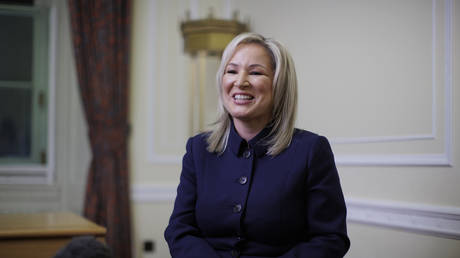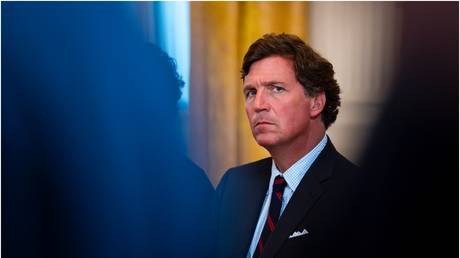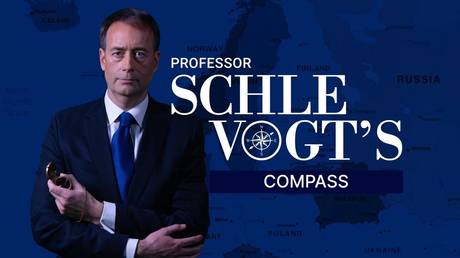
The move ends two years of political gridlock in Belfast’s legislature
Sinn Fein vice president Michelle O’Neill has hailed a “new dawn” in Northern Irish politics after becoming the province’s first-ever nationalist first minister on Saturday, in an historic move that could increase the prospect of a united Ireland.
O’Neill had served as first minister-designate since May 2022, when the pro-united Ireland group emerged as the largest party in the 90-seat Stormont assembly following elections.
However, O’Neill’s ascent into office had been blocked by Sinn Fein’s rivals, the Democratic Unionist Party (DUP), who boycotted the assembly in protest at post-Brexit trading rules it said undermined its relationship with Britain, effectively crippling the legislature, which relies upon a power-sharing agreement to function.
Addressing the Assembly Chamber in Belfast on Saturday O’Neill, 47, vowed to represent people of both nationalist and unionist backgrounds. “As an Irish republican I pledge cooperation and genuine honest effort with those colleagues who are British, of a unionist tradition and who cherish the Union,” she said.
Prior to O’Neill, there had been 11 consecutive unionist leaders at the head of Northern Ireland’s government since Stormont was established 103 years ago. She added on Saturday that the “historic” day “represents a new dawn” for Northern Ireland.
For three decades, Northern Ireland was gripped by sectarian violence between nationalist and unionist forces in a period known as ‘The Troubles’ that was ultimately ended by the signing of the Good Friday Agreement in 1998, which established new guardrails for Belfast’s devolved government.
US President Joe Biden on Saturday hailed the return of a functioning government in Belfast as an “important step” and said that he anticipated “seeing the renewed stability of a power-sharing government that strengthens the peace dividend, restores public services, and continues building on the immense progress of the last decades.”
The breakthrough in restoring the government follows the DUP’s decision last week to end its boycott of Stormont after agreeing a deal with London that it claims effectively removes the so-called Irish Sea border checks on goods imported from the UK.
The DUP, which supported the UK’s decision to leave the European Union (EU), had previously argued that the implementation of post-Brexit customs checks effectively placed a border between Northern Ireland and the rest of the UK. There are also concerns among unionists that imperiling Northern Ireland’s relationship with the UK could lead to further calls for a vote on Irish unity, particularly under a Sinn Fein First Minister.
The DUP’s Emma Little-Pengelly, who also assumes the role of Deputy First Minister in the new government, said that dual appointments will be “recognized by many” as an “historic day” despite admitting that there are issues upon which she and O’Neill “will never agree.”
Sinn Fein has a stated goal of achieving a united Ireland, whereas the DUP wishes to retain ties with the UK. A referendum on Irish reunification can only be held at the discretion of the British government.




